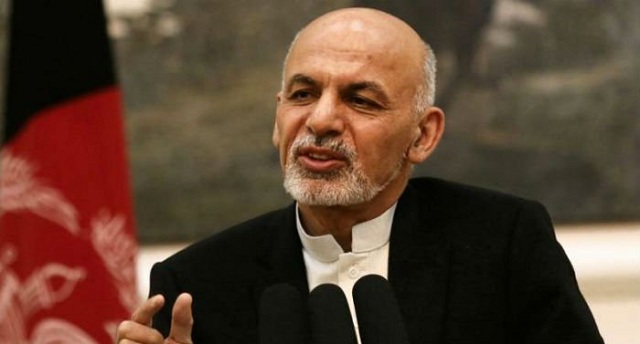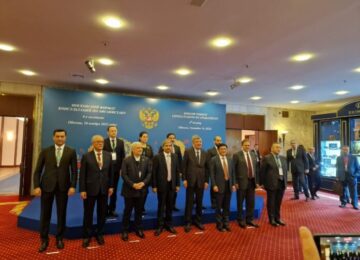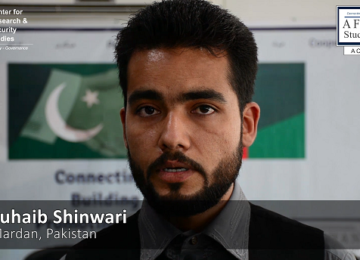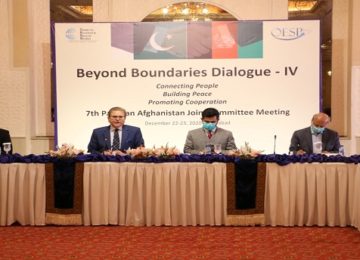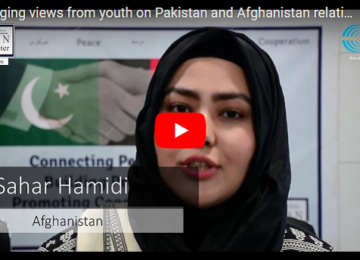Extraordinary scenes of Afghan Taliban and security forces spontaneously celebrating a historic ceasefire showed how fighters on both sides were fed up of fighting against each other. These scenes, though momentarily, also raised hopes for peace in a country ravaged by war. The jubilant response to the first truce between the Afghan government and the Taliban over the Eid holiday took many by surprise. The temporary week-long ceasefire, announced by Afghan President Ashraf Ghani with the Taliban after the country’s Islamic Council issued an edict to forbid suicide bombing, is a rare attempt by the Afghan President to urge the insurgent group to join peace efforts.
In a tweet before Eid, President Ghani stated, “The Government of the Islamic Republic of Afghanistan announces ceasefire from the 27th of Ramadan until the fifth day of Eid-ul-Fitr following the historic ruling [Fatwa] of the Afghan Ulema.” Another tweet stated that, “This ceasefire is an opportunity for Taliban to introspect that their violent campaign is not wining them hearts and minds but further alienating the #Afghan people from their cause.” Ghani also stated that the ceasefire did not extent to the Islamic State and other foreign militants. Reciprocally, on June 09, the Taliban announced that their fighters would stop attacking Afghan security forces for the three days of Eid for the first time in the nearly 17-year conflict.
This offer by Ghani is first of its kind to halt hostilities with the Taliban since he came to power in 2014. It raises hope that negotiations with the Taliban for a full peace settlement may be within reach. Earlier in February this year, President Ghani had offered the Taliban unconditional talks but the group had publicly refused to engage with the Kabul Government that it termed as ‘illegitimate’ and in response, further stepped up its attacks. The Taliban also stated that they rejected the constitution in its entirety and had demanded that a new constitution be drafted, if negotiations were to commence. This somehow showed a distant possibility of the Taliban’s openness to talks. President Ghani had said that this proposal was offered “without any preconditions,” although he made clear at the same time that the basis for any negotiation would be the current constitution of Afghanistan. Nonetheless, at the same time, he offered a partial “review” and “amendment” of it.
Consolidating his move, President Ashraf Ghani said on Saturday he would extend the government ceasefire beyond June 20 and on Sunday the presidential office said it would be extended by 10 days. On the contrary, the Taliban said they would resume fighting, despite Ghani’s announcement that the government was extending its own ceasefire with the group. In the statement on Sunday, the Taliban repeated their preconditions for peace talks, including that they would only negotiate directly with the US and that foreign forces should leave Afghanistan.
Michael Kugelman, an analyst at the Wilson Center in Washington D.C., said the Taliban leadership may have feared that “more days without fighting could convince the rank and file that peace is better than a war”. Kugelman further said the ceasefire had provided “a major building block” for the government’s efforts to negotiate a peace deal with the Taliban, which have failed so far. “While reconciliation still feels like a remote prospect, it now feels at least a bit more of a possibility,” he said. US General John Nicholson, head of the NATO forces in Afghanistan, also recently claimed that the Taliban had been holding peace talks with Ghani’s government which the Taliban denied. US claims follow as the superpower struggles to wind up the longest war in its history with President Trump pouring in more soldiers into Afghanistan.
Trump, in his address last year, said 16,000 U.S. troops would remain in Afghanistan indefinitely to deny terrorists a haven along with supporting Ghani’s attempts to negotiate peace with the Taliban. The insurgent group is estimated to control and contest nearly half of the country. Taliban seems to have little scope to get what they want in the wake of exhausting its human resources and logistics with more aggressive approach under Trump’s regime, that too, with no light in sight at the end of the tunnel. Taliban showing no interest in peace process after sentimental scenes of cease-fire peace days will indicate that they are least interested in peace and want to continue enjoying the perks and privileges they are getting as a war residue.
A noteworthy point is that if Taliban respond positively to the Afghan’s government offer of peace talks and take part in upcoming election, it would then become a win-win situation for them. It would imply that the US and its allied forces accept Taliban as a legitimate stakeholder. Taliban’s biggest resentment towards US is that the latter had ousted them from power and waged war against them. So, now, when the US and Afghan government want the Taliban to be a part of a future government, is it not what they wanted? Is it not the best outcome from Taliban’s perspective?
The Taliban have to understand that in the contemporary times of ours, real war is fought across the tables; and apparently Taliban would have more bargaining power if they come to the negotiating table now. It is high time that Ghani’s offer be responded to positively before the Taliban lose this window of opportunity. It is also seemingly the best of the times to engage, as Taliban enjoy diplomatic relations with many neighboring countries including China and Russia, thus raising their legitimacy. What comes next is unclear, but peace should be given a chance.
The authors Sitwat Waqar Bokhari and Saddam Hussein work as Programme Manager and Research Fellow, respectively, at the Center for Research and Security Studies (CRSS), Islamabad.
© Center for Research and Security Studies (CRSS) and Afghan Studies Center (ASC), Islamabad.



